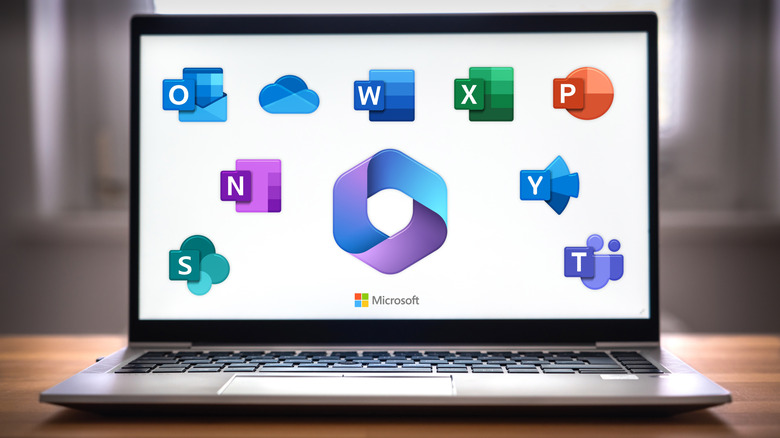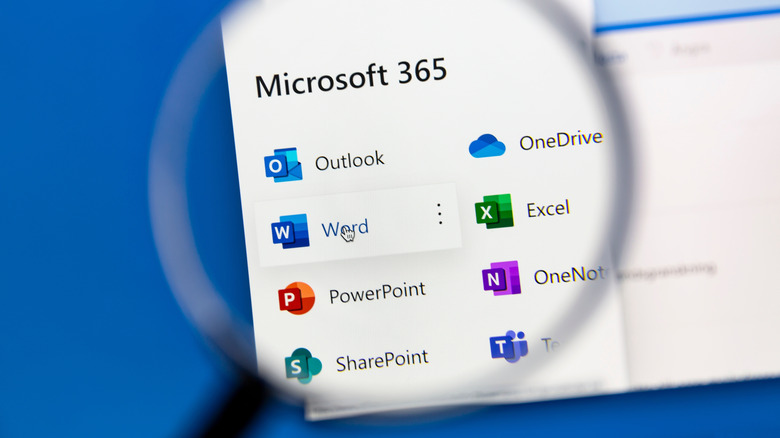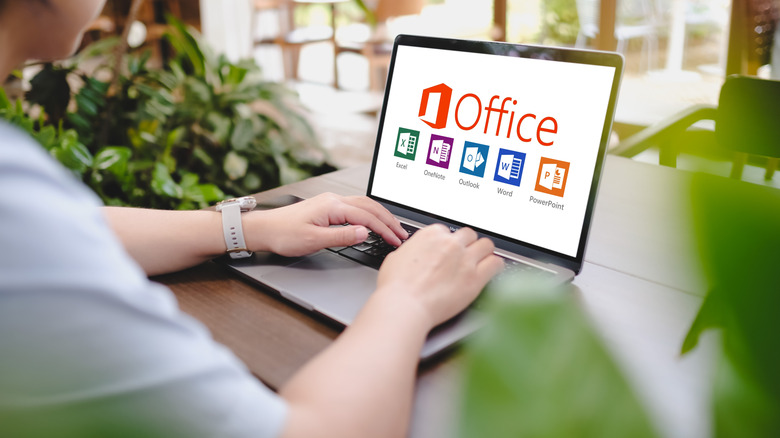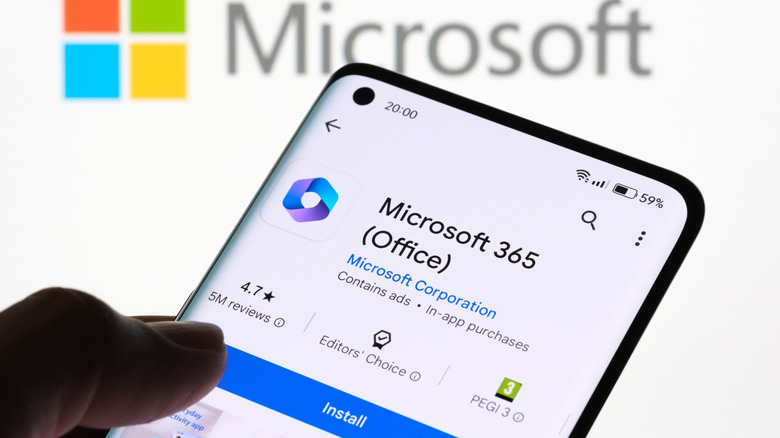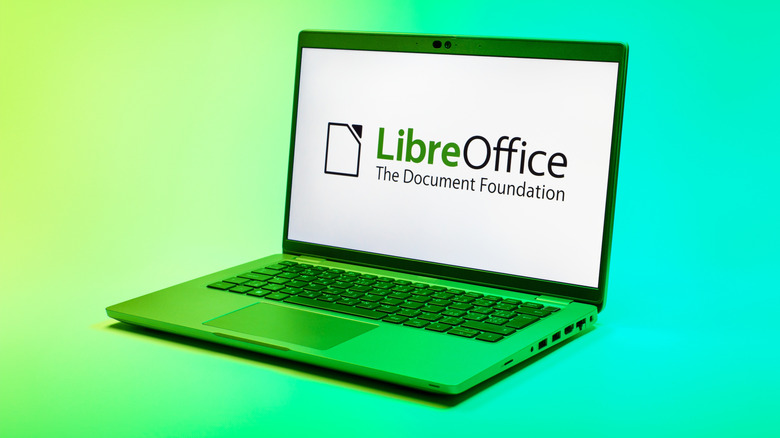Microsoft 365 Vs. Office 2024: Which One Should You Get?
Microsoft's Office applications have long been the de-facto option for productivity. Apps like Word, Excel, and PowerPoint are the Kleenex of their respective tasks. If someone tells you to make a PowerPoint, they often mean a slide deck of any sort, and Excel is likewise shorthand for spreadsheets. Because they're so essential to students, workers, and plenty of people in between, Microsoft has found new ways to monetize them over the years. Today, there are two paths by which you can access them: either by buying them outright with Microsoft Office 2024, or by paying a monthly subscription to access not only those main apps, but a whole slew of other Microsoft apps and services as well. If you need to use one or more of Microsoft's apps, it can be hard to tell which is the best option.
Although Microsoft's 365 rebrands and naming schemes are often confusing, both Microsoft 365 and Office 2024 have different limitations, and appear to be respectively targeted at two different types of user. To understand which is right for you, we'll break down what you get with each of these options, and then contrast the differences between them.Here's everything you need to know to decide whether you should get Microsoft 365 or Microsoft Office 2024.
What is Microsoft 365
Microsoft 365 is the Washington software giant's main subscription service, bundling all of the company's most popular apps and services together for a monthly fee. Microsoft 365 offers personal plans for an annual fee of $70 or $7 monthly, or family plans for $100 annually or $10 monthly. Those plans come with the holy trifecta of Microsoft Word, Excel, and PowerPoint, as well as Outlook for email. They also include Microsoft Defender for security, Microsoft Editor for AI-powered grammar and spelling assistance, Microsoft Clipchamp for basic video editing, Microsoft OneNote for note taking, Microsoft Teams for business communications, Microsoft Forms for creating online surveys and polls, and Microsoft Access for database management. Each subscriber also gets 1 TB of OneDrive cloud storage. These apps and benefits can be installed or used on any device where the subscribing Microsoft account is logged in.
Frankly, Microsoft 365 is a pretty good deal as far as subscriptions go, especially if you need Microsoft apps for work or school. What makes it more compelling is that you'll get app updates included with your subscription. However, there's a chance you could get Word, Excel, and PowerPoint for free, along with other Microsoft products. Your employer or school may be able to provide you with the apps you need free of charge, so it's a good idea to check in with the relevant departments in your organization before handing Microsoft your credit card details. For example, some schools provide Microsoft 365 subscriptions to students, and you can check here to see if you're eligible. Additionally, if you don't specifically need Microsoft apps, you should look at alternatives such as Google's Workspace apps or LibreOffice apps, which are free.
What is Office 2024
If you've spent the past several decades using Microsoft Office products, there's a good chance you're balking that it's become yet another subscription. What happened to the good old days when paying for a piece of software was a one-time deal? Well, Microsoft might not shout about it from the rooftops, but that option does still exist in the form of Office Home 2024. For a single payment of $150, you can own the classic 2024 desktop editions of Word, Excel, PowerPoint, and OneNote. That averages out to about $37.50 per app, which does not feel unreasonable. However, there are other strings attached that add some sting to the price tag. Office 2024 is registered to a single device, meaning you'll need to purchase it again when you get a new computer. And since you won't get free updates when Microsoft releases, the next version of those apps, you'll have to re-purchase them all over again if you want to keep them current. Lastly, despite the fact that it is device-locked, you must have a Microsoft account to use Office 2024.
Purchasing software outright without needing an account used to be the norm, but things have changed. Office Home 2024 remains the best option for those who don't want to put down deep roots into the Microsoft ecosystem, or who don't want to deal with a monthly or annual subscription. However, because Office 2024 software is registered to your computer, it is not a good deal for anyone who plans on upgrading their computer in the near future. Additionally, if you need other Microsoft services that aren't included in Office 2024, that could be a dealbreaker.
What are the differences between Microsoft 365 and Office 2024?
The primary difference between Microsoft 365 and Office 2024 is that the former is a subscription service that comes with a suite of Microsoft apps and services listed above. On the other hand, Microsoft Office 2024 is a standalone purchase that costs $150 as a one-time payment. It comes with Word, Excel, PowerPoint, and OneNote — no other apps or services included. Unlike 365, it lacks Outlook, Defender, Editor, Clipchamp, Teams, Forms, and Access, and there's no cloud storage. Moreover, Office 2024 is locked to your device, meaning you can only install these apps a single time on a single PC or Mac.
Moreover, if you subscribe to 365, all of the included apps will be upgraded to new versions as they are released. With Office 2024, you'll have to pay your way forward. That means that if, for example, you buy Office 2024 today and Microsoft releases Office 2025 tomorrow, you'll have to pay full price all over again to get the update.
If you're anti-subscriptions, have a newer computer that you don't plan on upgrading, don't need extra apps and services, and don't care about upgrading to the next version of the apps it comes with, Office 2024 is the way to go. That's a lot of ifs, which is probably the point. Microsoft likely wants customers to spend a tiny bit of money each month in perpetuity rather than to spend a large amount once. It's clear that Microsoft is pushing people toward the subscription-based 365 program, joining a growing trend of companies such as Adobe that have made their industry-standard software into subscription packages. If you don't mind that, 365 is the clear best choice over Office 2024.
Alternatives to Microsoft Office and 365
If neither a Microsoft 365 subscription nor an Office 2024 purchase sound like compelling options to you, there are a couple of options you can explore instead. If you need Word, Excel, PowerPoint, Outlook, Teams, or OneNote but don't need offline connectivity, you could try using the free web versions of those apps. The browser versions work a lot like Google's Workspace apps such as Docs, Slides, and Sheets. Web versions of Microsoft Office apps run in your web browser, and while they aren't as feature dense as the desktop versions, they're still more capable than the phone versions. Of course, you can also try out those aforementioned Google apps, which are also free and have replaced Microsoft's apps for many people.
Another free option is LibreOffice, a suite of productivity apps that made our list of 12 free apps every Windows user should have installed. It includes a word processor called Writer, a spreadsheet editor called Calc, and much more, all of which work seamlessly together and can even work with Office file formats. What makes LibreOffice great are two things. First, it's free (although you can donate to the project). Second, it's open-source, which means anyone in its user community who has the technical know-how can volunteer to help work on it and make it better for everyone. Even if you just want to bug test or help out with QA, you can have direct input on the software you use. Of course, being nonprofit means LibreOffice can have some rough edges, but that's just the price of freedom with an emphasis on the free.
